GREY2K USA Worldwide
On Track To Ending Dog Racing
The fight to end dog racing has been championed by GREY2K USA Worldwide, the non-profit dedicated to passing greyhound protection laws and ending the cruelty of dog racing. For nearly twenty-five years, the organization has successfully spearheaded legislative initiatives and promoted the adoption of these gentle hounds across the globe.
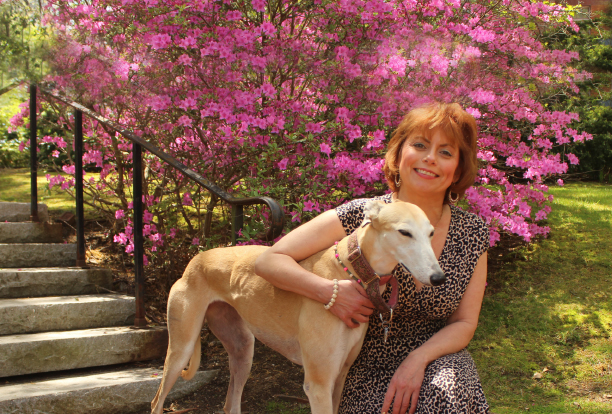
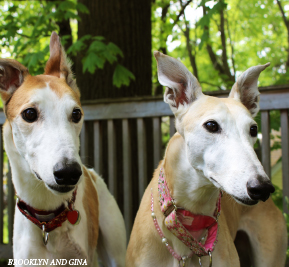
The inspiration for GREY2K USA dates to 1992 when co-founder Christine Dorchak and her dog Kelsey were struck by a speeding train. Amazingly, Kelsey managed to pull Christine to safety, likely preventing a head-on collision and saving both of their lives. When she awoke from her coma, Christine’s first words were, “How’s Kelsey?” She was so grateful that she promised to dedicate her life to helping dogs from her hospital bed. This commitment would be fulfilled almost a decade later, in 2001, when she and Carey Theil started GREYK USA from a one-room basement office outside Boston.
Fast forward to today, and commercial dog racing is now illegal in 42 U.S. states, remaining legal and operational in just one. In addition, Christine’s group has closed dozens of tracks and prevented the legalization of greyhound gambling in countries such as South Africa, Jamaica, and the Philippines.
One key victory was the passage of a referendum in Florida. In 2018, 69 percent of Floridians went to the polls and outlawed dog racing, shutting down twelve dog tracks with just one vote. That same year, GREY2K USA and ANIMA Macau worked to shut down China’s only legal dog track, the Canidrome, and airlift over 500 surviving greyhounds to safety. One of these dogs was named Brooklyn, who came to live with Christine and Carey.
New York Lifestyles had the pleasure of meeting Christine to ask her more about her mission and the future of greyhounds.
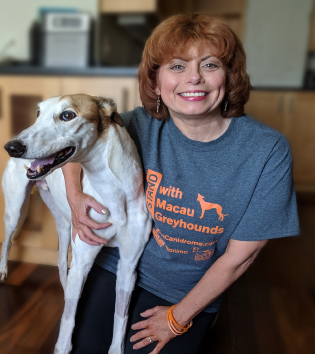
Christine, please share your story with us.
Since I was a child, I have always been a problem solver. So, when I learned that 2,000 dogs were confined in tiny cages and forced to run for their lives at two racetracks in my state, I had to do something to save them. I am from New Jersey, and we don’t allow dog racing, but I discovered that since 1934, innocent greyhounds had been racing and dying in Massachusetts. Worse, perhaps, no one seemed to care. It was just “business as usual” to them. Some people even said that greyhounds were racing machines, so it was OK to treat them differently than other dogs. It was appalling.
In 1997, my friends and I began picketing outside Wonderland Park in Revere, Massachusetts. This was one of the country’s oldest and most historic tracks, and it was rumored that the bodies of dead dogs were buried all around the property. In fact, the greyhound racing industry was first introduced by the likes of gangsters such as Al Capone and Meyer Lansky. So, there was a definite aspect of personal risk in what we were doing. But we knew that greyhounds were being hurt, and someone had to fight for them. If not us, who?
Our goal was to end dog racing in our home state, and we believed with all of our hearts that we would succeed that year! Little did we know that opposing dog racing would mean taking on some of the wealthiest and most politically connected track owners in the country, being sued for $10 million, collecting over 150,000 signatures twice, losing statewide in the year 2000—all before finally winning in 2008.
How did you get to where you are today?
The most important thing I can tell you is that I am not particularly beautiful or athletic, or smart. But one thing I am is determined. No matter who you are, you can make a difference in this world. Take risks. Try to do something to help others. Most of all, don’t be afraid to lose. You may surprise yourself. But time is short. Carpe diem!
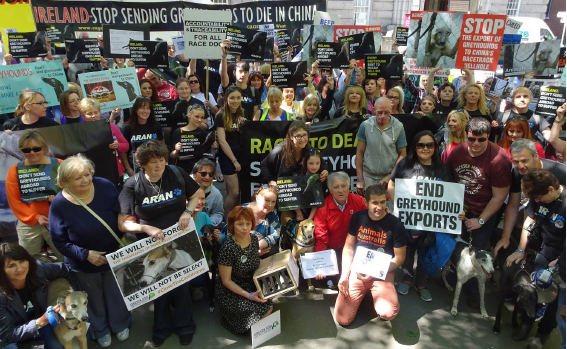
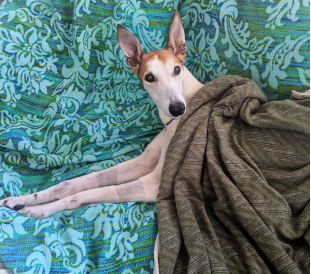
Has it been an easy journey? How did you overcome the bumps in the road?
Some would say that I have overcome many significant challenges, but nothing I have been through compares to the suffering of non-human animals. For example, when I was hurt and pronounced dead as I lay on the train tracks, an entire emergency team used their best skills and training to bring me back to life. By comparison, when a greyhound is hurt, he is worthless and faces immediate death by a cruel industry. This is the kind of injustice I am fighting.
Describe what a day is like for a racing greyhound?
No matter where they are, racing greyhounds are confined in small metal cages inside dark warehouse-style kennel buildings for an average of 23 hours a day. (Imagine these majestic dogs living in stacked chicken coops). They are fed a diet based on diseased meat. There are no toys for them and no play. Their “beds” consist of shredded newspaper or old carpet scraps.
When these gentle hounds are let out to race several times a month, they risk serious injury. A dog died every three days in Florida until 2018 when we were able to pass our voter question. And 2,000 West Virginia hounds continue to suffer today, risking crushed skulls, fractured legs, torn and twisted muscles, seizures, heat stroke and paralysis at every turn. Drugging and race-fixing are also a problem. And once a greyhound is no longer profitable, he must go. It is up to the kennel owner whether he lives or dies. Racing greyhounds are highly disposable, and in countries like Australia, the term “wastage” is used for all the surplus pups and ex-racers summarily killed yearly.
I understand you have a book coming out. What is it about?
Brooklyn Goes Home: The Rise and Fall of American Greyhound Racing and the Dog that Inspired a Movement has just been released. It is the story of our campaigns to save greyhounds and a remembrance of an extraordinary dog named Brooklyn. Our sweet boy spent eight years on death row, trapped in a dark, dirty concrete cell at a Chinese racetrack. Yet he held no grudges. Instead, he met each day joyfully, greeting anyone he encountered with a happy wag of his tail and a big smile. He taught us so much about true love and forgiveness.
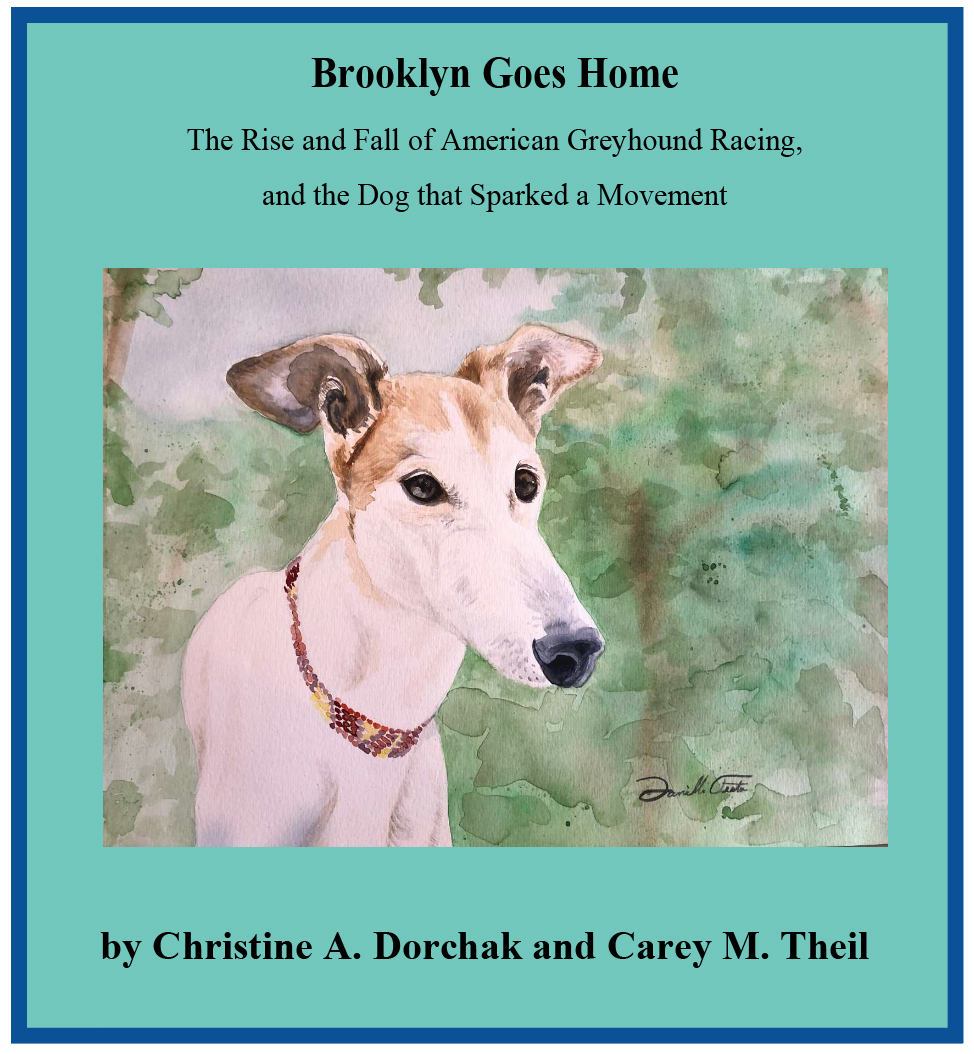
Brooklyn Goes Home is also the account of our state-by-state efforts to shut down dog racing beginning in 2001, culminating in the introduction of the U.S. Greyhound Protection in the 117th Congress. We continue to fight for the passage of this historic bill.
Now that you have almost wiped-out U.S. dog racing, what is the biggest challenge to realizing your goal?
Originally, our goals were met when a track closed or stopped live racing. But the industry has gained at least a temporary lifeline with the advent of online wagering. Someone with a cell phone can place a bet on races happening anywhere. This has provided a path forward for greyhound gamblers. In January, we launched our online #TwinSpiresCruelty petition to expose the new wave of remote gambling propping up a despicable industry. As part of this campaign, we flew a 75-foot-banner over the Kentucky Derby to let people know that Churchill Downs (CHDN) is now using its online gambling platform, Twin Spires, to take bets on cruel dog racing in the U.S. and Mexico. As a result, American greyhounds are being run to the ground at the Agua Caliente track in Tijuana. Fidelity Investments is the largest investor in CHDN, and we encourage everyone who cares about dogs to write to CEO Abigail Johnson and ask her to drop dog races too.
How can readers adopt a greyhound?
Are there special tips for caring for this breed? This may surprise you, but greyhounds are like giant cats! They are quiet, calm, rarely bark, and do not shed. Greyhounds are often called 45-mile-per-hour couch potatoes because they love to sleep. Like my dog, Gina, they take retirement seriously, believe me. Anyone interested in greyhound rescue may contact our office or go online at GREY2K.org/adopt or petfinder.com anytime.
What is the best way to help GREY2K USA Worldwide succeed in its mission?
We are a small organization with big dreams! Volunteers are always needed to help lobby for the greyhounds.
For more information on how to contact your lawmaker or offer financial support, call us at 866-2GREY2K, visit GREY2KUSA.org, and GREY2K USA Worldwide on Facebook, Twitter, or Instagram.






